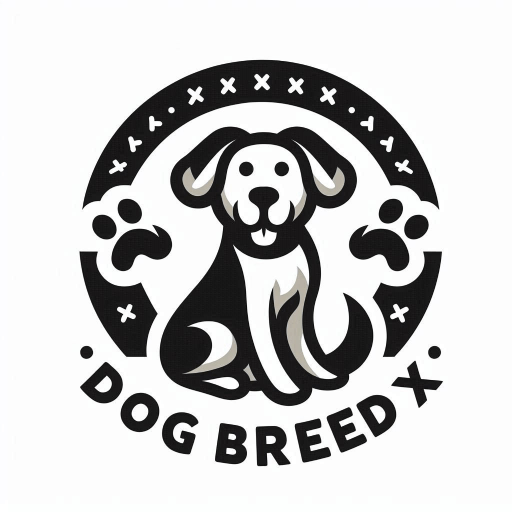Table of Contents
Bulldog Dog Breed
The Bulldog, also known as the English Bulldog, is a beloved breed recognized for its distinctive appearance and gentle, friendly nature. This breed is celebrated for its loose, wrinkled skin, pushed-in nose, and robust build. Bulldogs have become popular companions due to their affectionate demeanor, loyalty, and unique charm. In this article, we will explore the history, physical characteristics, personality, care needs, health issues, training, diet, suitability as pets, and similar breeds to the Bulldog.
History and Origin
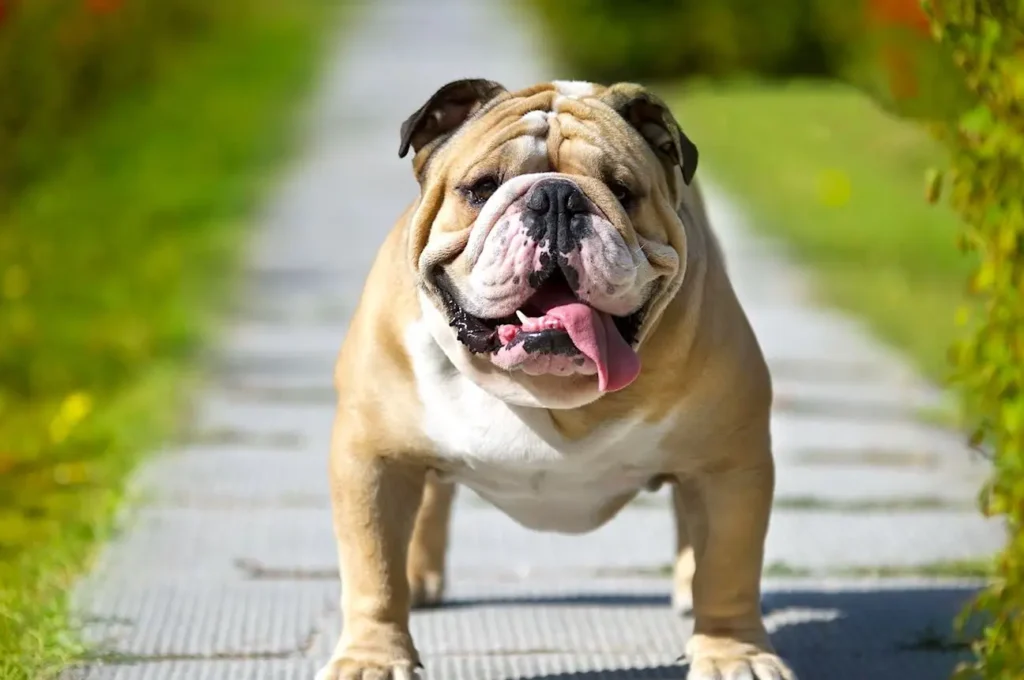
The Bulldog’s origins date back to the British Isles, where it was initially bred for bull-baiting, a popular but brutal sport in the 13th century. The breed’s strength, courage, and tenacity made it well suited for this purpose. However, when bull baiting was outlawed in 1835, Bulldogs faced potential extinction. Dedicated breeders transformed the Bulldog into a gentle companion dog, emphasizing its friendly and loyal traits. Today, Bulldogs are cherished family pets and symbols of resilience and strength.
Physical Characteristics
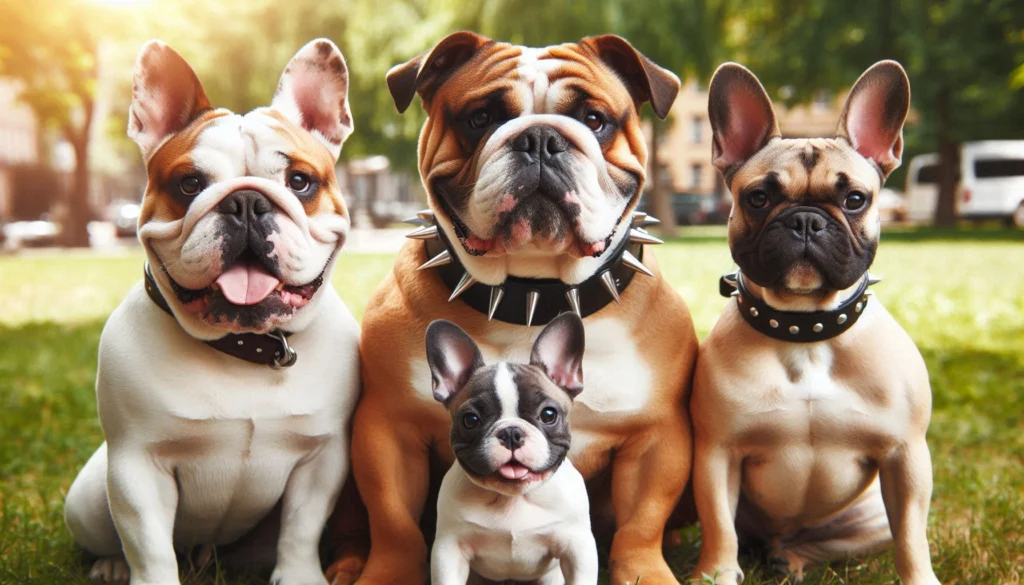
Bulldogs are medium-sized dogs with a muscular build and a distinctive appearance. They typically stand between 14 to 15 inches tall at the shoulder and weigh between 40 to 50 pounds. Bulldogs have a short, smooth coat that comes in various colors, including brindle, white, red, fawn, and piebald. Their most notable features include a large head, wrinkled face, short muzzle, and a pushed-in nose. Bulldogs have broad shoulders, deep chests, and strong, sturdy legs, giving them a distinctive, robust appearance.
Personality and Temperament
Bulldogs are known for their calm, friendly, and loyal personalities. They are affectionate dogs that form strong bonds with their families. Despite their tough appearance, Bulldogs are gentle and patient, making them excellent companions for children. They are generally good with other pets, especially when properly socialized from a young age. Bulldogs are also known for their stubbornness, which can make training a bit challenging, but their loving nature makes them a joy to have around.
Care and Maintenance
Exercise Requirements
Bulldogs have moderate exercise needs and are not highly energetic dogs. Daily walks and some playtime are usually sufficient to keep them healthy and happy. Due to their brachycephalic (short nosed) structure, Bulldogs can have difficulty breathing, especially in hot or humid weather, so it’s important to avoid strenuous activities and ensure they stay cool and hydrated.
Grooming Needs
Bulldogs have low maintenance grooming needs. Their short coat requires regular brushing to minimize shedding and keep it looking healthy. The wrinkles on their face should be cleaned regularly to prevent infections and irritation. Routine dental care, nail trimming, and ear cleaning are also essential to maintain their overall health.
Health and Common Conditions
Bulldogs are prone to several health issues due to their unique physical structure. Some common conditions include:
- Brachycephalic Syndrome: Breathing difficulties caused by their short muzzle.
- Hip Dysplasia: A genetic condition affecting the hip joints, leading to arthritis and discomfort.
- Skin Infections: Due to their wrinkles, Bulldogs are susceptible to skin infections if not properly cleaned and maintained.
- Obesity: Bulldogs can easily gain weight, which can exacerbate other health issues, so a balanced diet and regular exercise are crucial.
- Heat Sensitivity: Bulldogs are sensitive to heat and can suffer from heatstroke if not kept cool and hydrated.
Regular veterinary check-ups, a balanced diet, and preventive care are essential to manage these health concerns.
Training and Socialization
Training a Bulldog requires patience, consistency, and positive reinforcement. Bulldogs can be stubborn, but they respond well to treats, praise, and gentle guidance. Early socialization is important to ensure they grow into well-behaved adults. Introducing them to various environments, people, and other animals helps build their confidence and reduces the likelihood of behavioral issues. Basic obedience training, including commands like sit, stay, and come, is essential, and Bulldogs can also benefit from advanced training and socialization classes.
Diet
A balanced and nutritious diet is vital for the health and well-being of a Bulldog. High-quality commercial dog food that meets their nutritional needs is recommended. Portion control is important to prevent obesity, and feeding them two to three small meals a day helps maintain their energy levels and prevents overeating. Fresh water should always be available to keep them hydrated.
Suitability as a Pet
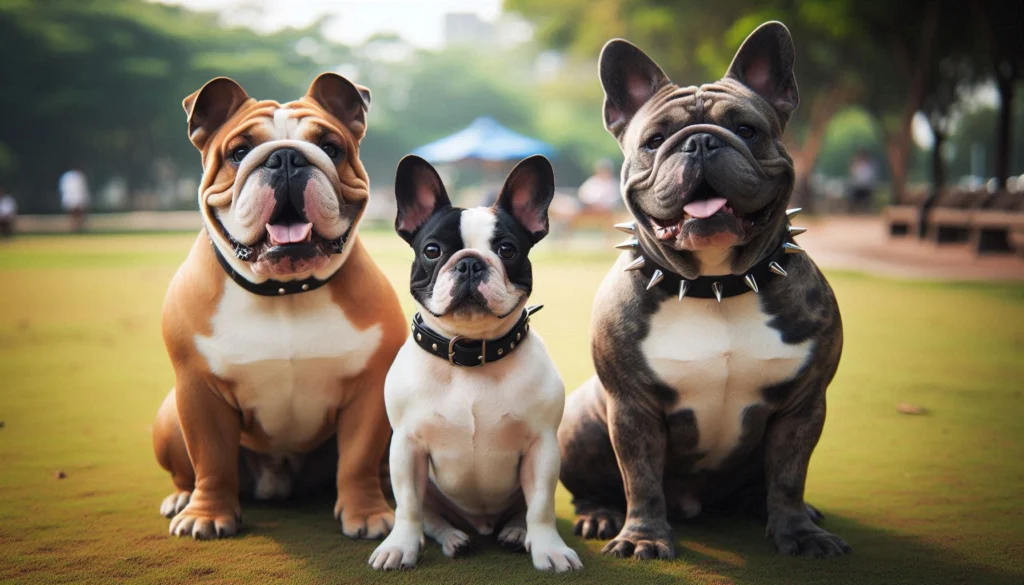
Bulldogs make excellent pets for a variety of households. Their calm and affectionate nature makes them suitable for families with children, singles, and seniors alike. Bulldogs are particularly well-suited for apartment living due to their moderate exercise needs and manageable size. However, prospective owners should be prepared for their potential health issues and ensure they can provide the necessary care and attention. Bulldogs thrive in environments where they receive plenty of love and interaction.
Similar Dogs
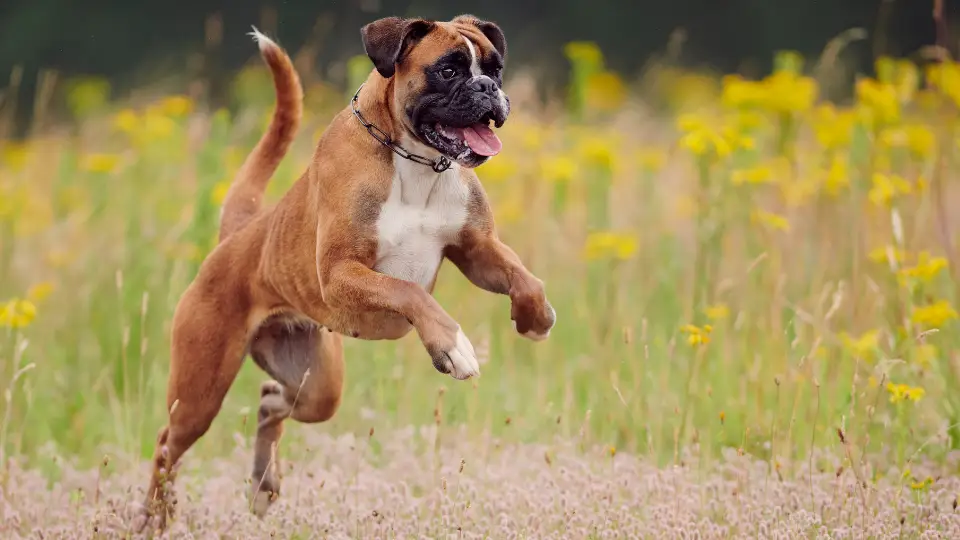


Several dog breeds share similarities with the Bulldog in terms of size, temperament, or appearance. Some of these breeds include:
- French Bulldog: Like Bulldogs, French Bulldogs are small, friendly, and have a similar appearance with their short muzzles and bat-like ears.
- Boxer: Boxers share the Bulldog’s muscular build and friendly nature, though they are generally more energetic.
- Pug: Pugs have a similar facial structure and affectionate personality, making them comparable to Bulldogs in many ways.
Conclusion
The Bulldog is a beloved breed known for its distinctive appearance, gentle personality, and unwavering loyalty. Despite their tough exterior, Bulldogs are affectionate and patient companions, making them excellent pets for various living situations. Proper care, regular exercise, and attention to their health needs are essential for keeping a Bulldog happy and healthy. If you’re looking for a loyal, loving, and unique companion, the Bulldog might be the perfect addition to your family.
